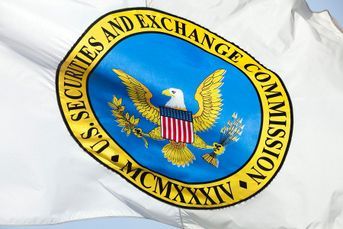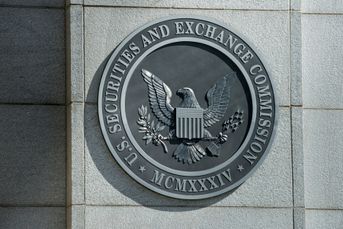We’ll just keep the wolf; hold the sheep’s clothing
 1
1
The SEC offers no evidence investors will benefit from Reg BI beyond vague, unsupported assertions
A recent InvestmentNews editorial stated that “[w]hile Reg BI falls short of making sure brokers put their clients’ interests first, it is far better than the status quo and should be allowed to move forward.”
It’s this “well, it’s better than nothing” position that permitted brokers to call their representatives “advisers” and almost allowed them to charge fees in lieu of their commissions while, of course, avoiding registration as the advisers they were pretending to be.
Brokers would love a true status quo, but the industry finds itself in a pressure cooker, realizing that some change is inevitable. So the SEC came up with Regulation BI under the theory that it does enough to make opponents say “it’s better than nothing” while not really changing the game for big brokerage firms.
Reg BI is less about investor protection than it is about protecting industry profits. Broker-dealers crafted, shaped and supported Reg BI. Typically, when an industry pushes through new rules, it’s because it either thinks it will be better off under them or, at worst, is trying to prevent a more restrictive set of rules favored by consumer protection advocates.
With Reg BI, the SEC came up with a framework that results in broker-dealer and investment adviser standards that are indistinguishable to consumers, but provide them with less protection under virtually every scenario.
By design, Reg BI does not do much to require broker-dealers to change their current business practices from the status quo. Yes, they have to provide additional consumer disclosures, albeit significantly less than registered investment advisers. It’s generally understood that inundating consumers with disclosures reduces the likelihood that they’ll read any of it.
Reg BI’s most significant shortfall is that it fails to require or urge that brokerage firms eliminate conflicts of interest or even mitigate them in any way.
Reg BI fails to provide a real standard of conduct and only applies when making recommendations. To be blunt, Reg BI is a consumer trap.
[Recommended video: MarketCounsel’s Hamburger: What’s next in regulation?]
It’s no coincidence that Reg BI uses the undefined term “best interest,” a term that’s synonymous with an investment adviser’s fiduciary duty. In so doing, Reg BI effectively kills the fiduciary standard by extrapolating the two most important words, “best interest,” and grafting them onto the suitability standard.
All the while, the SEC makes it clear that this “best interest” is not a true fiduciary duty. Consumer confusion is a big part of the problem that Reg BI was supposed to cure, yet using the same words for two different standards will undoubtedly continue to confuse investors and further blur the regulatory lines between broker-dealers and investment advisers.
Reg BI further erodes the distinction between investment advisers and broker-dealers. Undeniably, clients will get less protection for their broker-dealer relationships than a similar investment adviser relationship (think “best interest,” but not “fiduciary best interest”) without any ability to understand the difference.
The trap is set. Investors still won’t be hiring a fiduciary, but now they’ll think they are getting the same protections. Relying on a faulty premise may help investors sleep better at night, but the SEC is there to protect investors, not provide them with sleeping pills.
[More: Brokerages won’t know bite of Reg BI until enforcement begins]
Investors’ best interest
The InvestmentNews editorial further stated that “investors cannot wait for the lawsuits to work their way through the courts before they receive the additional protections afforded under the current rule.”
No evidence supports implicit acceptance that the SEC’s modest protections coupled with vast assurances are the only worthy position, or even a proper one. The views of leading state attorneys general, state securities regulators, the Department of Labor, independent experts, tens of thousands of independent fee-based investment advisers, consumer advocates and investors themselves more accurately and succinctly describe what should be expected from a financial adviser — always put the client first.
For nearly 80 years, Congress has mandated a separation of sales activity (broker-dealers) from the delivery of financial advice (investment advisers). Broker-dealers and investment advisers were subject to different regulatory standards because they were conducting fundamentally different businesses.
In 2010, Section 913 of the Dodd-Frank Wall Street Reform and Consumer Protection Act gave the SEC the authority to promulgate a uniform fiduciary standard for retail investment advice. The section required that any change to the standard of broker-dealer conduct be “no less stringent than the standard applicable to investment advisers.”
Yet Reg BI doesn’t do what Congress originally intended because it does not require anyone who gives financial advice to register as an investment adviser; nor does Reg BI do what Dodd-Frank intended because it does not raise broker-dealer conduct to a level of a true fiduciary. Reg BI is not better than nothing, it’s actually more harmful than what we have today.
The evidence is clear that since the SEC has abdicated its leadership in this fight, other stakeholders must step up to fill this void in order to truly protect investors, either through a true fiduciary duty imposed upon broker-dealers or disclosures that would create a clear delineation for consumers that brokerage firms operate under a sales-oriented standard of care.
At MarketCounsel we admittedly champion the entrepreneurial, independent investment adviser as the sole remaining bastion of objective investment advice. But we appreciate the utility of the broker-dealer model, too.
Investors need investment advisers when they are looking for objective client-centered investment advice. Investors (and their advisers) need broker-dealers to provide distribution and access to capital markets.
In addition, retail clients may choose broker-dealers for transaction-based services (including incidental advice). Both models provide vital services to consumers and regulation should not favor one at the expense of another.
We do not support the notion that all broker-dealers should be held to a fiduciary standard. We do support a true fiduciary standard for any investment professionals who offer investment advice that is not incidental to their brokerage services.
Should the SEC wish to increase the standard of care on broker-dealers, it should not be done in such a deliberately confusing manner. Now that would be what is in the best interest of investors and their advisers.
To conclude in a similar way as the InvestmentNews editorial: “Every day, tens of thousands of individuals are joining the ranks of the retired, and the need for trustworthy financial advisers is greater than ever.”
We agree. Hire a registered investment adviser and get that trustworthy advice from a fiduciary or access the capital markets directly through a salesperson; caveat emptor.
Brian Hamburger is founder, president and CEO of MarketCounsel, a business and regulatory compliance consulting firm, and founder and managing member of the Hamburger Law Firm.
Learn more about reprints and licensing for this article.







